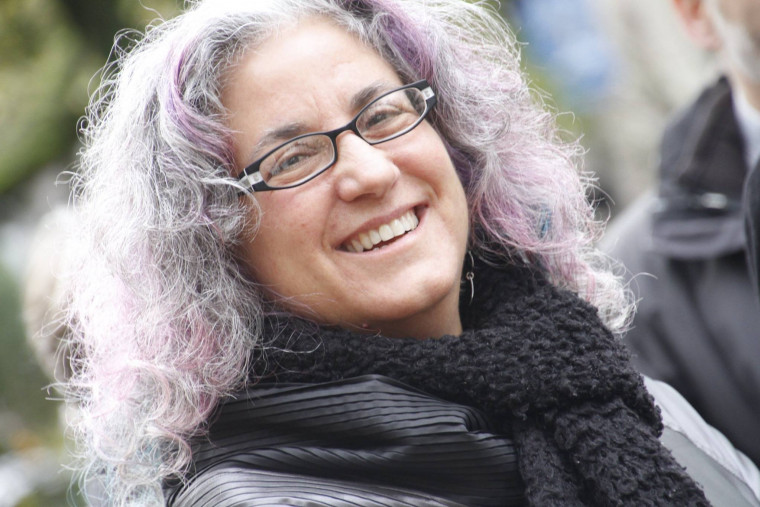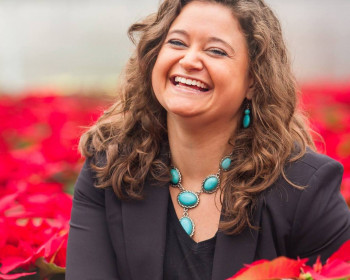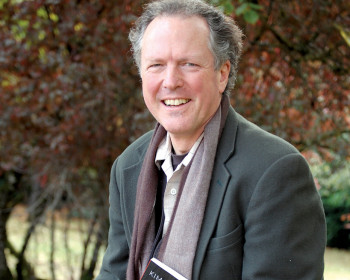Q&A: Rabbi Debra Kolodny, JD
Open gallery

We are living in a moment when public vitriol is skyrocketing and tensions can flare at a moment’s notice. While almost every other city in the nation has seen an increase of 20% in hate incidents from 2016 to 2017, Portland has seen an increase of 200%, with Oregon leading the nation in hate incidents per capita.
Rabbi Debra Kolodny will be offering Interrupting Hate in Public Spaces this March, a workshop aimed to start a dialogue about this community crisis, and offer non-violent methods to address acts of hate experienced around us. We spoke with Debra about rising hate in a digital age, religion and intersectionality, and what sparked theit interest in this work in the first place. More information on Interrupting Hate in Public Spaces
“Humans can let fear drive them. When they do, we have injustice, oppression and hate. Humans can also let love drive us. When we do, we create equity, justice, inclusion and compassion.”
You have been actively involved with a variety of justice causes since 1981. How did you get started doing this work?
I was raised in a home where justice seeking was the passionate norm. We were a union family and I ended up working in and with the labor movement for decades. I was raised by a feminist mother. I started marching for justice at 8 years old, and I decided at 12 that I wanted to go to law school to become a civil rights lawyer. I guess, as Lady Gaga says, I was born this way. Once I left home, I got involved with campus activism at college and law school. Once out of school, my primary focus was LGBTQ+ work as my volunteer work while I did the economic justice work for my vocation. As the years progressed, peace work, racial justice, immigrant rights, ending houselessness and more all became priorities for me.
Can you tell us how you became involved working with Portland United Against Hate (PUAH), and how did you come to develop this training?
I was working at Resolutions Northwest at the time and was on the Office of Neighborhood Involvement Budget Advisory Committee. At our first meeting after the 2016 election, many community facing organizations spoke about the rise in hate incidents in the city. We began to meet to explore what we felt we could collectively do about it. Those weekly conversations are what birthed PUAH, so I feel blessed to have been involved from the start.
As for the training itself, a national strike had been called for inauguration day in January 2017. We discussed what training we might provide on that day—to give everyone who took the day off to strike something constructive to do. We launched two workshops: Interrupting Hate and Artful Dialogue Across the Political Divide. We only had room for 25 folks to attend Interrupting Hate, but over 1,000 expressed interest. I began leading the workshop around the state to organizations, congregations, and college campuses. When the PUAH coalition grants were released, I proposed a Train the Trainer model and worked with the NAACP, the YWCA, the Q Center, Latino Network and Lutheran Community Services to deliver 8 trainings, training 8 workshop leaders to continue the work through their own organizations, and have since trained almost 900 people.
In our current digital age, the internet can be considered a public space, and the anonymous nature of social media has turned it into a platform for hate speech. What are your thoughts on this? What can we to help absorb and combat the behavior—sometimes from family members and friends— that we see online?
Social media definitely gives people permission to be cruel. The only thing we have control over is ourselves and our own wall, though. So those of us who want to see a more loving, equitable, just and inclusive world need to walk our talk. Speak with kindness. Cut off that hate and take it off our wall. Start live (on the phone or in person) conversations with those we love to seek understanding of the impact hate speech and actions have on us and those we love. So I guess what I’m saying is, nip hate n the bud and move those conversations to real life with people who are willing and capable of having heart opening conversations.
How do you integrate religion or spirituality into your intersectional political work?
The connections are quite clear in the sphere of anti-hate work, because religious bigotry is the largest driving force behind hate incidents after race and ethnicity. LGBTQ+ status is so close it would be tied for second. So right here in my body as a queer Jew, I live in the intersection of the impacts of anti-semitism and heterosexism. Christian hegemony and Christian supremacy are forces that support White Supremacy, White Nationalism and religious bigotry, even as there are of course millions of spectacular Christians, churches and pastors. Religions are organized by humans. Humans can let fear drive them. When they do, we have injustice, oppression and hate. Humans can also let love drive us. When we do, we create equity, justice, inclusion and compassion. Everything is indeed connected!
Lastly, why is your upcoming training important to people in our community, and what is the number one takeaway you hope participants will walk away with?
It is not unusual to be gripped by fear or a sense of inadequacy in the face of a hate incident. This workshop will help us identify what inhibits us from acting, how we can overcome those inhibitions, and then learn and practice how to be helpful while centering the experience of the target and reducing risk. One takeaway? This work is not about ‘caping in’ and saving the day. It is about honoring those targeted, preventing harm and creating the world we want to live in.
Workshop: Interrupting Hate in Public Spaces, March 15th, 9 a.m.-noon.
Graduate Communications is located in room 205 of Rogers Hall on the Graduate Campus.
voice 503-768-6054
fax 503-768-6053
Graduate Communications
Lewis & Clark
615 S. Palatine Hill Road
Portland OR 97219

